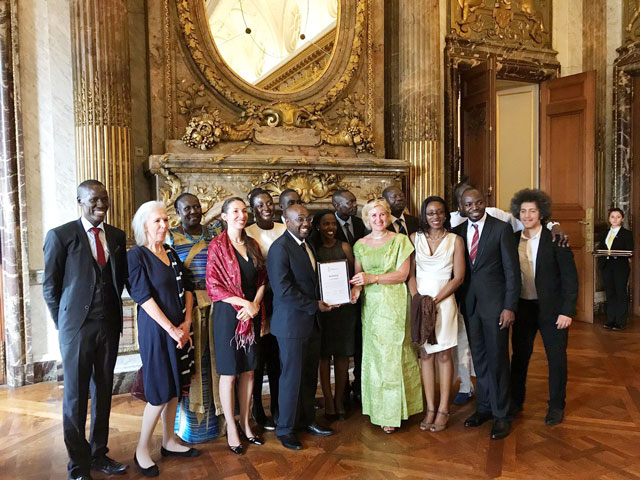
Gerald Abila is the executive director of Barefoot Law. He spoke to the Independent’s Agnes E Nantaba about improving access to justice, law and order in Uganda using technology e-platforms.
What are the key elements in your management style as a manager?
Management is like raising a child because you have to improvise but most importantly, management is a team effort and combination of different strengths and weaknesses.
Your strength is your contribution to the team while your weakness is a burden that is taken on by someone else. Of course there are collective things that are done together as a team but the greatest comes from individual effort. So effective management is about decision making and empowering the team to make decisions so as to achieve the goal of the organization.
What is your assessment of the understanding of and adherence to justice, law and order in Uganda?
There are many improvements that are being made in the Justice, law and order sector which enables coordination. We have innovations and social media technology where many people are gradually becoming aware of things and shows progress in enabling the population understand their rights to information as well as address some issues that may arise. For instance, innovations in delivering the law like getting the law simplified and sharing it with the public is what we do but it can also be jurisprudence, and in this case we are far ahead of other jurisdictions as several countries cite Ugandan laws and cases in making their court decisions. Recently, a Ugandan court decision won an international recognition and that shows that we are ahead and progressing.
Uganda is ranked low on the list when it comes to citizens observing and obeying the law, according to the World Justice Project. How are you working to improve the state of affairs?
We normally get aspects of the law that we believe are critical, break down the legal terms to let the public know what they need in any dealings and also let them know that much as the law gives them rights, there are responsibilities that come with it. The law is a right that places you under some obligations.
You incorporate technology in addition to the traditional methods to increase access to legal services. What impact has this created?
The future of the legal profession is in technology. It should, however, be noted that technology is an enabler because it doesn’t operate in a vacuum. We come in with the different models that incorporate both technology and non technology based and with it, we have tremendous success.
Social media alone has many people so we know that at the end of the day someone is learning something new and that is the impact we have created. That knowledge will lead to observance and eventually lead to increase in access to justice and the law. The only mistake we are making is dwelling more on the software side without considering the hardware side as so many people have solutions which don’t have devices to get going.
You recently started working with Bribespot, how does the arrangement work?
Bribespot is a platform for anonymously reporting corruption and other incidences. People report cases to Bribespot and incase there is need for follow up, cases are forwarded to us to proceed but we encourage everyone to use it an as international platform. More people are adopting it with the end goal of increasing access to justice, law and order.
What about the Women Property Rights Initiative?
In our work, we started with general law but overtime we realized there are some issues that keep coming up in the same line that require specific interventions. For instance, the number of women on our platforms were less than the number of men and so we came up with the project to address the issues of women and property rights and cater for those who don’t have access to our technology platforms.
Majority of lawyers are based in Kampala, leaving millions of citizens with hardly any access to legal services. What is your strategy to strike a balance?
It might be true but over time, the trend is changing as many lawyers are starting to open up practices in different parts of the country. There are also a number of legal aid organizations that are scattered across the country. We should, however, realize that many people have gadgets and the only way we can reach majority of them is by supplying the information to them in a way that is sustainable as we may not able to open up offices all over the country.

Barefoot law was one of the winners of the €200,000 King Baudouin African Development Prize. What does the development mean to your work?
It shows that what we started off doing with one small mobile phone to try and prove a concept has finally been recognized around the world. It’s not only helping validate problems here but the elements of this model being used in studies and researches shows that there is something happening in Uganda that is beneficial. We intend to use the prize money for the organization towards growth and also research into more artificial intelligence as we try to develop systems to be more efficient.
You expressed interest in spreading to other East African countries. How far have you gone with your initiative?
Not only in East Africa but also sub-Saharan. We are in talks with some partners to try and get some elements of barefoot law to try and alleviate issues of access to justice and the law in their jurisdictions. Our goal is to build a concept throughout the world.
****
 The Independent Uganda: You get the Truth we Pay the Price
The Independent Uganda: You get the Truth we Pay the Price


